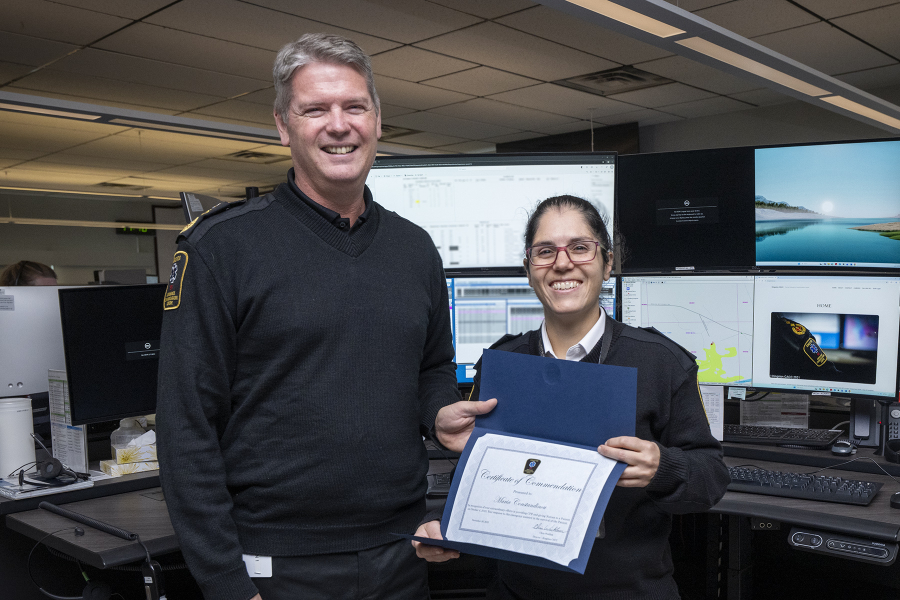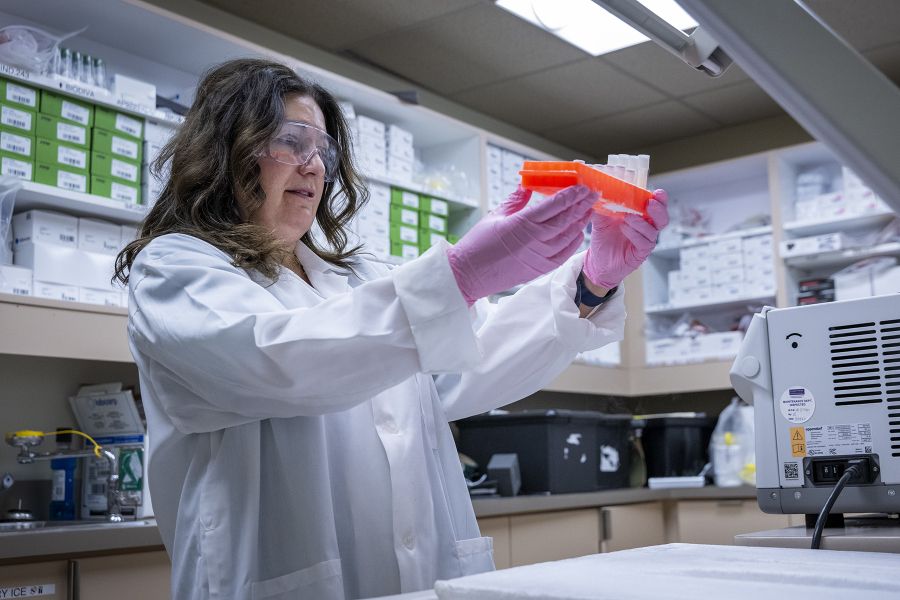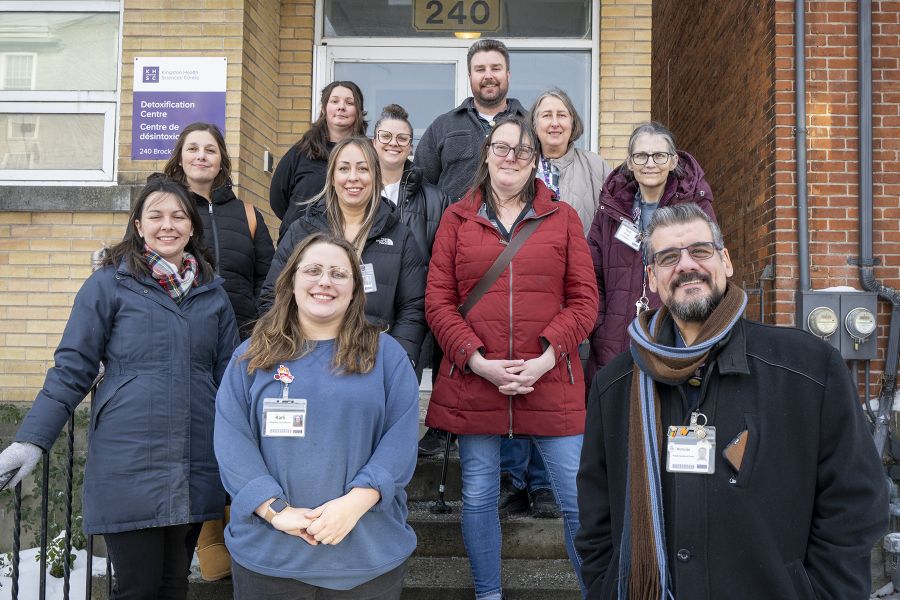Effective immediately masking is required for everyone when present on all inpatient units, in the Emergency Department (ED), the Urgent Care Centre (UCC), and the Children’s Outpatient Centre (COPC).
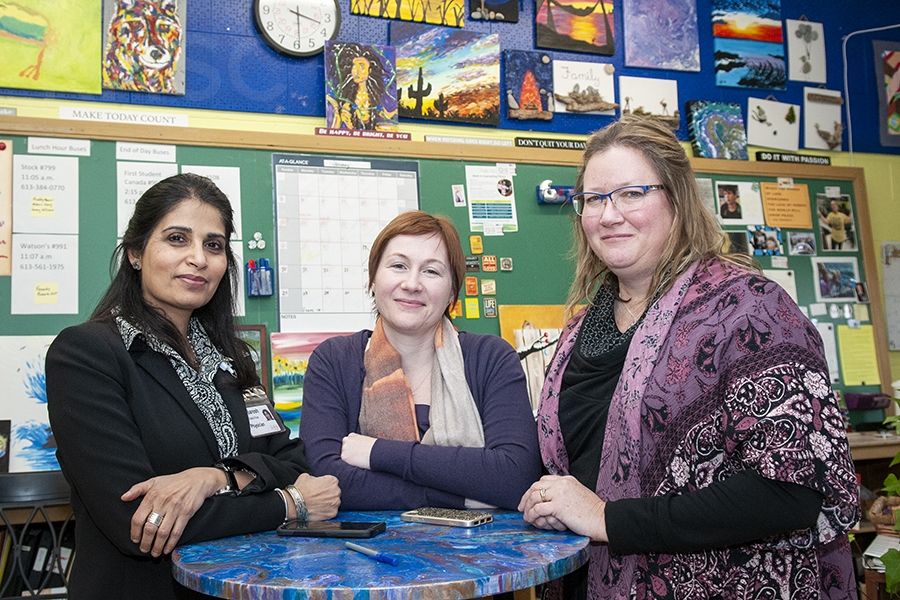
Every year, up to 20 secondary-school students from the Limestone District School Board enroll in the LINKS program, an alternative classroom designed to help youth who are unable to attend school due, in large part, to the complex mental health issues they experience.
The program is attended four half-days a week, and is supported by a multidisciplinary team. At the heart of the team is a teacher, who works collaboratively with consulting partners, including a psychologist and a child-and-youth psychiatrist to re-engage students in educational and social activities.
“Students who attend the LINKS program experience a learning environment that helps them further develop the coping strategies needed to integrate back into their regular classroom,” says Tammy Hagerman, LINKS program teacher.
Just looking around the LINKS classroom, it’s clear it is a unique space that encourages participation and inspiration. Students’ artwork occupies most of the wall space, thriving plants reach for the light coming through the big windows, afghan blankets cover comfy chairs and sofas, and a bird is whistling in its enclosure, while another one is perched on Hagerman’s shoulder.
“It’s a very welcoming, safe space for youth, and observing their behaviour in this more natural setting allows for more accurate diagnoses and treatment,” says Dr. Sarosh Khalid-Khan, a psychiatrist in the Child & Youth Mental Health program at Kingston Health Sciences Centre’s (KHSC) Hotel Dieu Hospital (HDH) site.
In addition to offering an inclusive, calm classroom that is favorable to learning, students in the LINKS program are also given an opportunity to interact with mental health care professionals who can help them learn coping skills to manage their feelings of worry, sadness and anger.
“Their severe mental health issues prevent the youth we see in the LINKS classroom from going to the program at the HDH site for support, similar to how they are unable to go to school or even leave their houses,” says Dr. Jennifer Davidson, a psychologist in KHSC’s Child & Youth Mental Health program. “Through LINKS, we are able to meet them in an environment they can manage, and provide timely support and treatment.”
Dr. Davidson helped start LINKS seven years ago, which began as an outreach program to regular classrooms. “It was clear after about a year that we needed a separate place where students could feel comfortable enough to express themselves more fully,” she says.
Thanks to a recent $14,800 grant from the Community Foundation for Kingston & Area (CFKA), the LINKS program is set to expand on the current opportunities it offers youth to help them grow through real-life experiences, such as riding the bus, engaging in low-impact activities like walking, and field trips to public places like a grocery store.
The CFKA community grant will be used to ready the classroom and its participants for additional skills development, including learning to cook simple meals, searching for a job, preparing a resume and developing interview skills.
“Unlike a clinical setting where youth are recalling difficult moments that have happened and trying to learn from them afterward, in the LINKS environment, they receive support and learn how to cope with challenging situations in the moment, which helps them improve their resiliency,” says Dr. Khalid-Khan.
Gallery
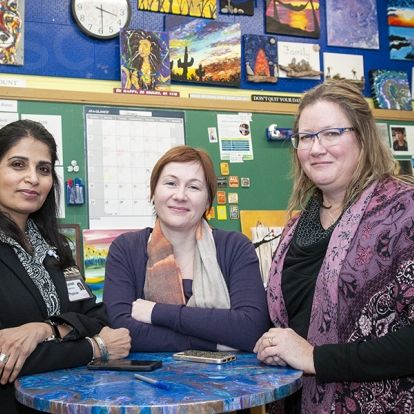
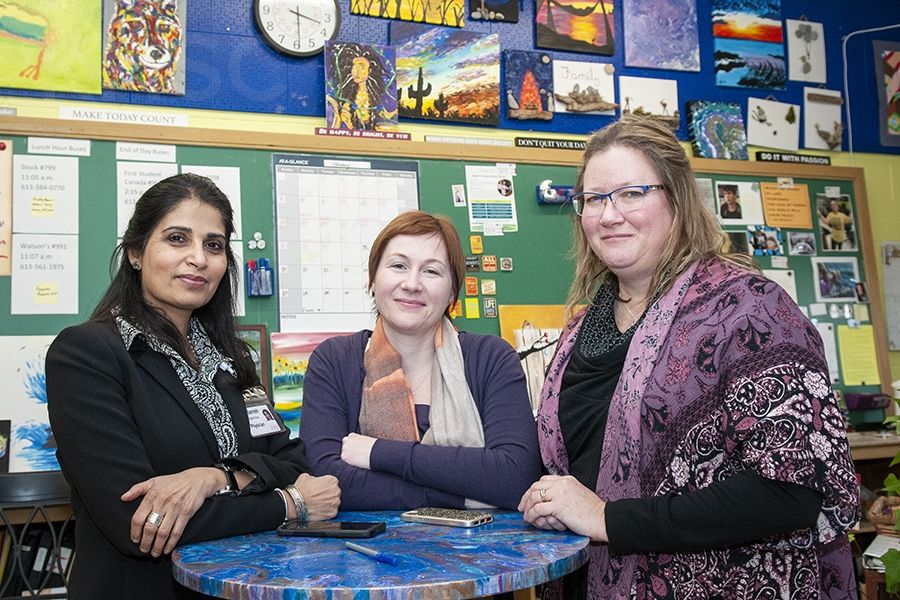
From left to right: Dr. Sarosh Khalid-Khan, Dr. Jennifer Davidson and Tammy Hagerman

